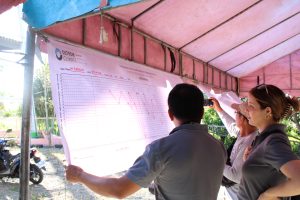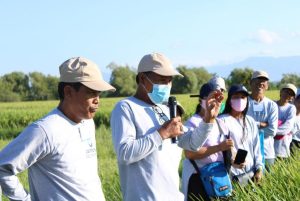The Upper Pampanga Rice Climate-Smart Rice project leverages demand for Nature-based solutions to drive carbon financing into the hands of smallholder rice farmers in a transformative Payment for Ecosystem Services program in Central Luzon, Philippines.
Farmers in the project contribute to climate change mitigation by significantly reducing the methane emissions associated with rice production through a technique called Alternate Wetting and Drying (AWD).
Ostrom Climate trains farmers in the implementation of AWD through our extensive Farmer Field School program. The method involves timely release of continuously flooded paddy water to prevent anaerobic breakdown of organic material.
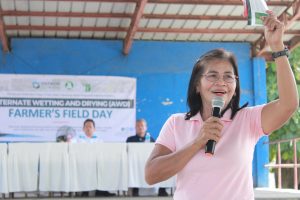
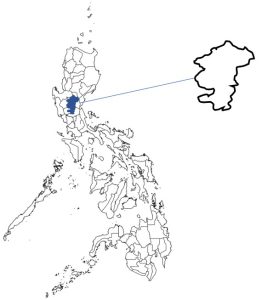 The Project Area
The Project Area
The project is being implemented in the Upper Pampanga River Integrated Irrigation System (UPRIIS) service area of the National Irrigation Administration (NIA), a 145,800-hectare area spanning the provinces of Nueva Ecija, Tarlac, Pampanga, and Bulacan.
It is the most important rice region in the Philippines with the highest rice output per hectare.
Monitoring and Certification
We closely monitor AWD implementation and crop management practices in our Project rice fields to facilitate the certification process for carbon credits.
We also collect soil data, and directly measure greenhouse gas data from representative baseline and Project rice farms to support GHG quantification.
As part of the Project’s monitoring protocol and to support water management decision-making, all farmers are provided with observation wells to regularly collect data about the water level in their field with the help of our Rice Specialists. This supports GHG modelling and AWD practice verification for the issuance of carbon credits. The project is being validated and verified to Verra’s new rice standard (2024).
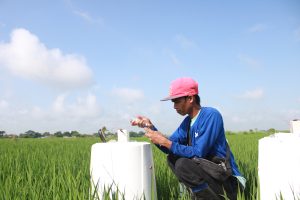
Partnerships
Ostrom Climate works in close cooperation with the Philippines National Irrigation Administration (NIA), which provides invaluable expertise in water management and infrastructure, and directly partners with Ostrom Climate staff on our Farmer Field School program.
Ostrom Climate also benefits from the expertise and support of The Philippines Rice Research Institute (PhilRice) which provides research and infrastructural support.
We are also partnered with the Center for Conservation Innovations Philippines, which lends their world class expertise in monitoring and measuring biodiversity and socioeconomic impacts of environmental projects.
Learn more about the project on the Verra Registry Page.
